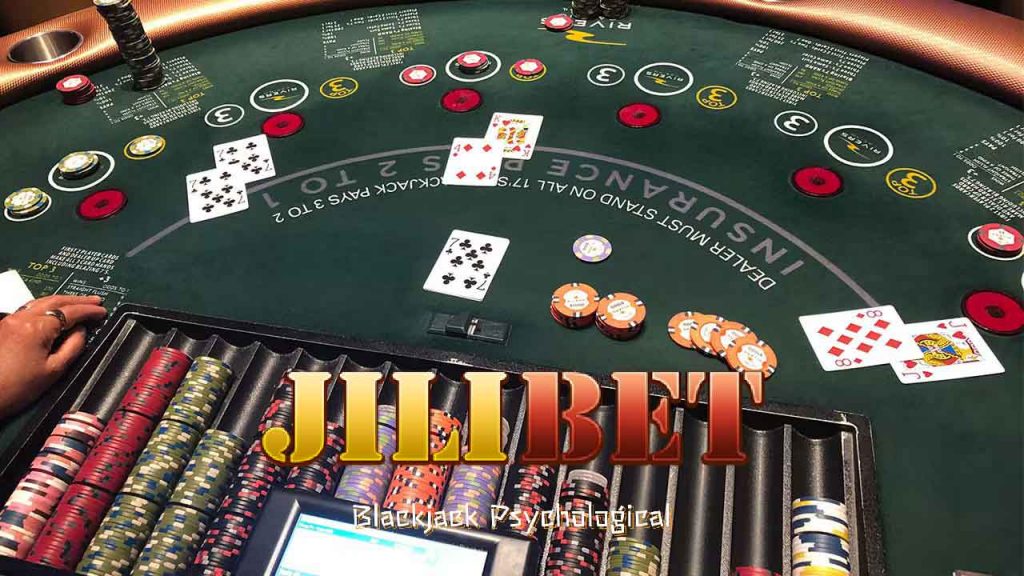Let’s Be Real—Blackjack Isn’t Just a Numbers Game, It’s a Mind Game
Let’s be honest—when you sit down at a Blackjack table, especially on a platform like Jilibet sign up, you’re not just playing cards. You’re stepping into a mental battlefield. This isn’t just about counting to 21—it’s about reading the room, staying cool, and keeping your mind sharp. Sure, the dealer might smile, chat, and look friendly, but make no mistake—their real job is to keep you entertained just enough to forget that your wallet’s getting lighter.
But don’t worry. Today, we’re flipping the script. Let’s talk psychology—so you stop getting played and start playing smarter.
Step One: Know Your Enemy (Yes, That Means the Dealer)
The house advantage isn’t simply a matter of luck; it’s a carefully calculated mathematical advantage built into the rules and mechanics of the game. This advantage, though often small in individual instances, compounds over time. Therefore, while luck plays a role, a player who understands the game’s structure and employs strategic thinking can significantly reduce the house’s edge. The dealer isn’t a random entity; they are programmed to ensure the long-term profitability of the game.
Dealers aren’t just some random folks handing out cards. They’re pros. Here’s what they’ve got going for them:
- They follow strict rules (they hit on 16, stand on 17—every time).
- They never change their minds on the fly.
- And no, staring them down won’t rattle them.
In other words, the only real wild card at the table… is you.
Step Two: Don’t Get Chummy with the Dealer
Psychological judo, in the context of gambling, involves subtly influencing the perceived environment and the dealer’s (and sometimes other players’) actions. This doesn’t involve deception, but rather understanding human behavior and using that understanding to your advantage. The key is to create an environment where your actions and decisions seem more rational and less predictable, thus reducing the house’s ability to anticipate and counter your moves.
Dealers making small talk and cracking jokes? That’s part of the strategy. The friendlier the vibe, the more relaxed—and careless—you get.
Sure, smile back. But when it comes to playing your hand, you’ve gotta be all business. Cold and calculated—like a robot in sunglasses.
Step Three: Zip It
Don’t be that guy loudly narrating every hand, throwing shade at the cards, or throwing a pity party every time you lose.
Why?
- You’re giving away your emotional state.
- You’re distracting yourself.
- You might annoy the table—and a bad table vibe can mess with your flow.
Play it cool. Let your game do the talking.
Check out “Master Blackjack Without Losing Your Shirt” to learn more about blackjack.
Step Four: Read the Room
Another psychological tactic is to observe and learn from other players. In online settings, you can often see betting patterns, reactions, and even potential tells—similar to how one might in a physical casino. Engage in chat features or forums associated with your game of choice, but also be cautious of misinformation and ego-driven advice. The goal here is to understand the nuances of the game beyond the immediate transactions, giving you a psychological edge over both the dealer and your fellow players.
No, you don’t need to be psychic. But you do need to pay attention.
- If most people are playing by the book? Cool—stick around.
- If someone’s splitting 5s or doubling down on 14? That’s a red flag. Time to bounce.
Pro tip: Bad players mess with the rhythm of the game—especially in multi-deck games. Don’t let them drag you into their chaos.
Step Five: Don’t Chase Losses
Ultimately, outsmarting the house isn’t solely about psychological tactics. Strong personal discipline is paramount. Having a well-defined budget and sticking to it is crucial. Knowing when to walk away from the table, even when winning, is a critical skill. Understanding your limits and not chasing losses are paramount to long-term success.
Losing five hands in a row doesn’t mean the dealer is out to get you. It’s just statistics doing its thing.
And no—doubling your bets to “get it all back” is how rent money disappears.
Instead:
- Take a walk.
- Breathe some fresh air.
Grab a drink (but maybe skip the alcohol if you’re trying to win).
Step Six: Bet with Logic, Not Emotion
Maintaining composure and avoiding emotional outbursts is crucial. When you’re feeling anxious or excited, your judgment can become clouded. The house thrives on emotional volatility. A calm, collected demeanor can make you appear more rational and less predictable, thus reducing the dealer’s ability to anticipate your moves. Practice mindfulness and emotional regulation techniques to maintain a steady state of mind, even under pressure.
Don’t go all in just because you’re “feeling lucky.” Whole casinos have been built on people betting with their feelings.
Your bets should follow:
- Card counting, if you’re into that.
- A clear rhythm or pattern if you’re not.
- The golden rule: bet smaller when losing, bump it slightly when winning. Survival first.
Step Seven: Use Reverse Psychology—On Yourself
Feeling like a boss? Act humble.
Starting to tilt? Channel your inner Zen monk.
Get yourself into “logic mode.”
You’re the only part of the game that can truly break down or blow up—and also the only one that can go supernova when it counts.
The Final Mindset: Play Consciously
You’re not here to win every hand. You’re here to:
- Make +EV (positive expected value) decisions.
- Stick to your strategy like it’s law.
- Walk away when it’s time—preferably with cash, but at least with dignity.
The dealer may not be your friend, but you can keep your wits about you, outsmart the house, and make informed decisions. By weaving together emotional control, insight into gameplay dynamics, effective time management, and a healthy perspective on loss, you can elevate your online gambling experience, turning the tables ever so slightly in your favor.
Welcome to visit https://jilibet.co/ to enjoy more game related information.

